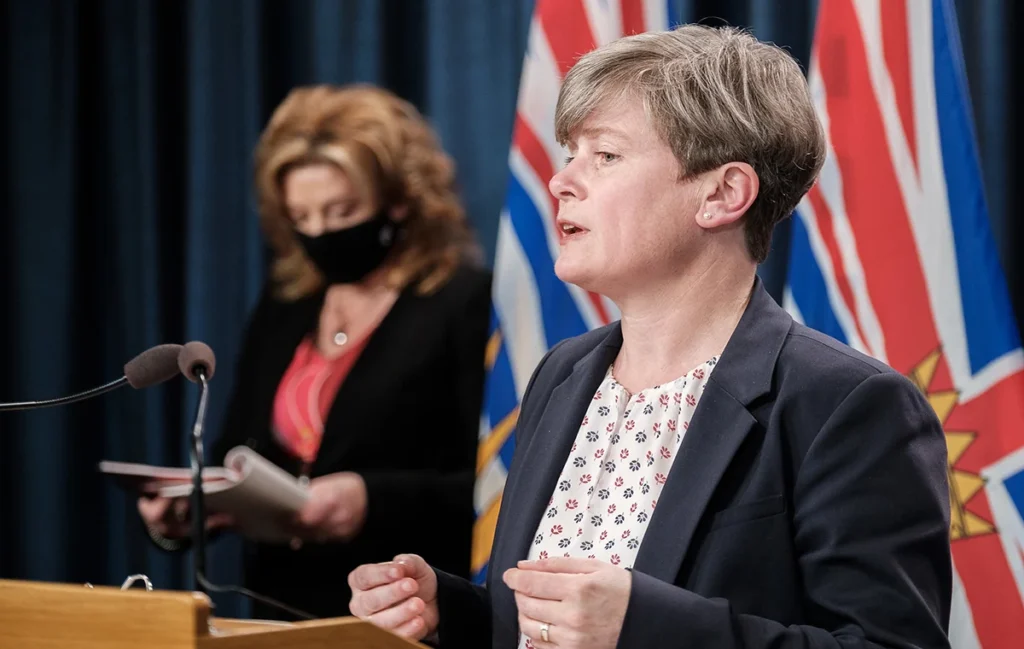Following the dissolution of British Columbia’s Ministry of Mental Health and Addictions, Health Minister Josie Osborne has made bold announcements about a renewed approach to tackle the province’s escalating overdose crisis. With the weight of the mental health portfolio now merged into the Health Ministry, Osborne has laid out promises to streamline services, reduce overdose deaths, and improve access to treatment. But can these pledges translate into meaningful action?
A Shift in Strategy Amid Rising Death Tolls
The recent closure of the Ministry of Mental Health and Addictions marked the end of an initiative launched in 2017 to address the province’s deepening toxic drug crisis. The ministry was criticized for lacking authority and resources, leaving many to wonder if its dissolution represents a retreat from focused efforts or an opportunity for systemic reform. Health Minister Josie Osborne, tasked with integrating mental health services into the broader Health Ministry, has promised that the restructuring will lead to better-coordinated, faster-acting responses.
In her first major announcements since assuming responsibility, Osborne outlined a vision emphasizing increasing treatment beds, bolstering harm reduction measures, and improving collaboration between agencies. “This restructuring allows us to move forward with an all-of-government approach,” Osborne said, highlighting her intention to address gaps in the system while expediting decision-making. The Health Ministry, she explained, would now focus on providing comprehensive services under one umbrella, eliminating duplicative efforts and ensuring more efficient use of resources.
The timing of these announcements is critical. The province has recorded over 1,700 toxic drug deaths in 2024 alone, underscoring the urgency for impactful reforms. While Osborne’s promises signal a renewed focus, many advocates remain skeptical, recalling years of delayed or unrealized policy goals under previous leadership. Whether the Health Ministry can deliver on its new commitments remains to be seen, but the expectations are immense.
Treatment, Harm Reduction, and Prevention
Osborne’s promises have centered on three key areas: expanding treatment options, strengthening harm reduction initiatives, and improving overdose prevention efforts. She has pledged to increase the number of publicly funded treatment beds, a move that could alleviate some of the pressure on families and individuals seeking care. Osborne also committed to accelerating the establishment of integrated mental health and substance use services, aiming to make care more accessible and effective.
Harm reduction remains a contentious issue, and Osborne’s approach has been measured. While she acknowledges the importance of safe supply and decriminalization in reducing overdose deaths, she has stopped short of making sweeping commitments. Instead, she has promised to engage communities and frontline agencies to better understand their needs before implementing large-scale changes. Osborne emphasized that any policy shifts must balance evidence-based approaches with community perspectives, particularly in regions that have resisted harm reduction measures.
Osborne’s announcements have also included plans to strengthen early intervention and prevention programs. By integrating mental health support into schools and community settings, the Health Ministry hopes to address substance use issues before they escalate. While these initiatives show promise, they require significant investment and long-term commitment—elements that have historically been difficult to sustain in BC’s approach to addiction and mental health.
Challenges and Public Skepticism
Despite Osborne’s ambitious promises, skepticism remains high among advocates and experts who have seen previous commitments fall short. The integration of the Mental Health and Addictions Ministry into the broader Health Ministry raises concerns about whether mental health issues will receive the attention they require in a system already strained by the demands of general healthcare. Critics warn that merging responsibilities risks sidelining specialized services in favour of broader healthcare priorities.
Advocacy groups like Moms Stop the Harm have expressed cautious optimism but emphasize the need for concrete results. As a group co-founder, Leslie McBain noted that while Osborne’s plans are encouraging, “we need to see immediate action and accountability.” Others, like DJ Larkin from the Canadian Drug Policy Coalition, have highlighted the continued need for safe supply and decriminalization measures, pointing out that the toxic drug supply remains the leading driver of overdose deaths.
Recent policy reversals also fuel public skepticism. Premier David Eby’s scaling back of the province’s decriminalization pilot after backlash over open drug use has led many to question the government’s commitment to evidence-based reforms. Osborne’s ability to navigate these politically sensitive issues while maintaining momentum on harm reduction and treatment expansion will be a defining challenge.
A Critical Moment for Mental Health and Addiction Services
Josie Osborne’s promises mark a pivotal moment in BC’s response to its toxic drug crisis. The dissolution of the Ministry of Mental Health and Addictions signals a shift in strategy, with the Health Ministry now tasked with delivering more integrated and effective solutions. While Osborne has set a clear agenda that includes expanding treatment beds, enhancing harm reduction efforts, and improving system-wide coordination, the scale of the crisis demands more than promises.
The coming months will reveal whether Osborne’s announcements can translate into tangible outcomes. Advocates and experts agree that quick action is needed to address both immediate overdose risks and the systemic barriers preventing access to care. With thousands of lives at stake each year, the pressure to deliver meaningful results has never been greater. Osborne’s vision offers hope for now, but the path forward will require navigating political, logistical, and public challenges with unprecedented precision and commitment.
This moment represents both an opportunity and a test for BC’s leadership. Osborne’s ability to balance ambitious goals with practical implementation could shape the province’s trajectory in addressing one of its most urgent public health crises. Whether this new approach will deliver lasting change or fall into the patterns of the past, its impact will resonate deeply with those living on the edge of crisis.
Glenn is dedicated to scrutinizing government actions affecting the Downtown Eastside and holding those in power accountable for their commitments. With a focus on transparency and policy analysis, his writing aims to expose gaps between promises and outcomes, pushing for meaningful changes that benefit the community.







Leave a Comment